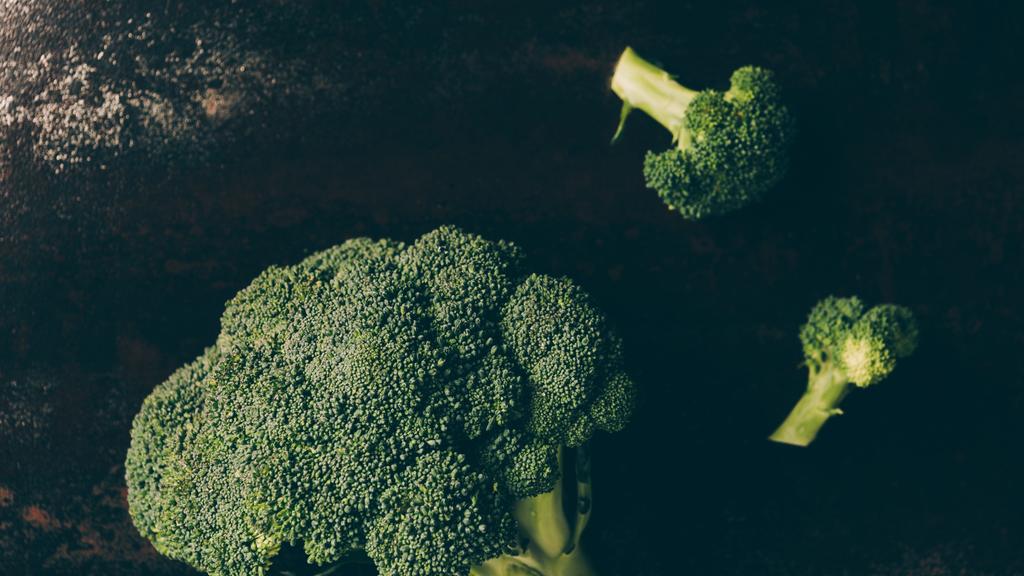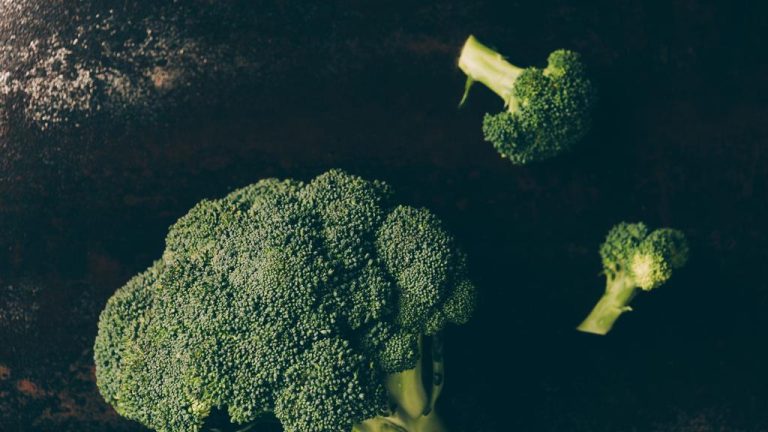Broccoli is very healthy thanks to its nutritional values. Here you can find out which nutrients cabbage contains and what they mean for your health.
Broccoli is very healthy – the vegetable is considered a local superfood. In addition to a particularly large amount of vitamin C and calcium, it also contains beta-carotene, minerals and mustard oil glycosides. Broccoli only contains about 30 kilocalories per 100 grams. It can therefore be easily integrated into a healthy diet.
Vitamin bomb: Broccoli is so healthy
Vitamins support almost all functions of your body. They are essential: that is, the body cannot produce them itself. That’s why you need to get enough from your diet.
Broccoli contains the following healthy vitamins:
94 mg/100g vitamin C: Vitamin C supports the metabolism, has an antioxidant effect and even helps with digestion. According to the DGE (German Society for Nutrition e.V.), the vitamin C requirement of adults is between 95 and 110 milligrams per day. 100 grams of (raw) broccoli are almost enough to cover your entire daily vitamin C requirement.
179 µg/100g Vitamin K : Vitamin K supports bone growth and blood clotting. If you cook a dish with broccoli, you can easily get 60-80 micrograms of vitamin K to meet your needs.
0.8 mg/100g beta-carotene: As a precursor of vitamin A, beta-carotene is important for many areas of the body: For example, it supports the function of the eyes and helps to build up the skin. According to the DGE, the daily requirement for beta-carotene is 0.8-1.0 milligrams per day.
1.29 mg/100g vitamin B5: Vitamin B5 or pantothenic acid contributes significantly to the functioning of the energy metabolism in the body. The DGE recommends an intake of six milligrams per day.
Broccoli contains many healthy minerals, plant compounds and amino acids
Like vitamins, minerals are important for your body. You also have to get these nutrients through food – for example through broccoli.
Among other things, 100 grams of broccoli contain:
58 mg calcium: Calcium is probably the most important mineral for humans. Your body needs it to build bones, for example. In addition, the substance stabilizes the cell walls and is involved in digestion and the transmission of stimuli. The recommended daily amount is 1000 milligrams.
256 mg Potassium: Potassium keeps muscles working properly. A deficiency can cause muscle cramps. Adults should consume about 4000 milligrams of potassium per day to meet their needs.
18 mg magnesium: This nutrient also supports muscle function and strengthens bones. Magnesium is also important for human hearing. The DGE recommends an intake of 300 to 350 milligrams per day.
63 mg Phosphorus: Like calcium, phosphorus is important for your bones. The daily requirement for adults is 700 milligrams per day. Since phosphates are often found as additives in food, Germans usually consume more than enough phosphorus.
The daily requirement of minerals cannot be covered by broccoli alone. Other good sources of minerals are nuts or other green vegetables such as spinach or kale.
The healthy vegetables also contain the secondary plant substances glucosinolates (mustard oil glycosides). These have an antioxidant and immune-boosting effect. The substances are also attributed antibacterial and anti-carcinogenic properties.
Large amounts of different amino acids such as arginine or cysteine also make broccoli so healthy. The essential amino acid tryptophan forms the precursors of vitamin B3 – it is therefore important for carbohydrate and fat metabolism. Amino acids take on many other functions in metabolic processes and serve as building blocks for proteins.

How to properly prepare broccoli
In order to preserve as many of the valuable ingredients as possible when cooking, you should follow the following tips:
Heat broccoli very briefly.
Blanch it, for example: You can do this by putting the broccoli in boiling salted water for a minute or two and then briefly shocking it in ice water.
You can also eat broccoli raw.
Note: In order to get all the ingredients, you should prepare the broccoli as freshly as possible. You can also store it in the vegetable drawer of the fridge for a day or two. You should process the vegetables at the latest when the broccoli florets begin to turn yellowish.

